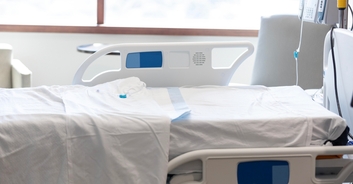There's nothing quite so shameful as the feeling of waking up after a big night out on the town, only to discover while in the throes of your hangover, that you did some drunk shopping hours before. Personally, I'd rather have drunk texted my ex than spent a fortune on junk I don't need. There's nothing worse than getting a notification telling you that you bought some utterly pointless novelty item for a laugh at an extortionate price. A tiny trampoline? An inflatable dartboard? What the hell was I thinking?
The problem is, thanks to one-click purchases, it's even easier for your inebriated self to log on and begin impulse-buying until you're almost completely bankrupt. However, what you might not know is that, apparently, intoxicated retail is more of a problem than you might have otherwise thought. In fact, new evidence claims that Americans and Brits alike are spending a staggering amount of cash on stuff online while under the influence; and all this wasted money is having a deeply negative effect on people's wallets.
According to a comprehensive survey conducted by shopping comparison site Finder.com, which examined the transactions made by over 2,000 online shoppers, Americans spent, on average, approximately $448 on drunk purchases per person over the course of 2017. Worryingly, this figure is double that of 2016, which suggests that our compulsive shopping behaviour is actually getting steadily more unfettered.
It doesn't sound like a total disaster when considered individually, but when this sum is extrapolated to its logical conclusion, it becomes apparent that Americans spent around $30.43 billion on drunk shopping in total. In the United Kingdom, the stats were no less grim. Finder.com learned that more than 15 million Brits drunkenly squandered money on online shopping last year, and the average person there spent approximately £291 ($409).
Furthermore, the same study revealed some surprising facts about the way different demographics choose to buy while completely wasted. For example, it seems as though men are far more likely to indulge in a bit of drunk shopping than women are, and the average American male can expect to rack up an annual cost of approximately $564, compared to the more modest sum of $282 spent by American females on average.
It also seems as though there's a generation gap when it comes to the issue of how much money people chose to burn. Members of generation X spent the most cash on drunk shopping: approximately $738 last year on average. That sum is more than three times the amount spent by millennials over the last few years, who only wasted $206 on average. Married people appear to spend twice as much as people who are divorced or separated. Married people usually spent around $327.62 a year on drunk purchases, compared the figure of $147.71 spent by divorcees.
However, single people are the group most likely to stupidly buy something when over the limit. Apparently, 55.78 per cent of singletons surveyed sheepishly admitted that they had made a purchase they regretted while under the influence, compared to 43.63 per cent of married drinkers who confessed to the same. It seems that when you're in a solid relationship, or at least share your finances with another person, you're overall less inclined to spend recklessly while drunk.
More alarming still is the fact that online retailers seem only too happy to take advantage of our party-loving inclinations in order to turn a healthy profit. A number of internet marketplaces have begun craftily setting discounts for products after 9pm, so they can entice drunk people to part with their well-earned dosh. For example, data on eBay's traffic reveals that the busiest time of day is from 6:30 to 10:30 in each timezone precisely because of this phenomenon. Steve Yankovich, vice president mobile for eBay on mobile, concurred with the assessment that drinkers make the best customers in an interview with the New York Times, stating: "If you think about what most people do when they get home from work in the evening, it’s decompression time. The consumer’s in a good mood."
However, experts warn that throwing caution to the wind like this can have serious consequences and that if retailers continue to encourage reckless spending, then the repercussions of alcoholic indulgence could be far worse than a hangover. Kristin Kassaw, a professor of psychiatry and behavioural science at Baylor University, recently stated: "When you’re loading things you can’t feel or touch into this fake cart, you don’t have a sense of, ‘I’m buying all this stuff, I’m buying too much.’ It takes you away from the actual spending-money experience." This dissociation leads to hapless shoppers spending far too much on things they don't need in the first place.
So, if you want to avoid losing a hell of a lot of your wages on stuff you'll regret the next day, then maybe think twice about browsing Amazon after a night out, or better yet, opt out of one-click purchases if you know you'll end up regretting it later. You'll thank me for this advice next time you check your bank balance.
Featured illustration by Egarcigu








